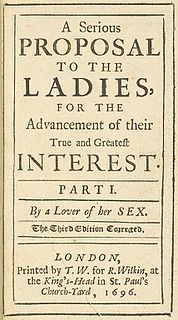A Quote by John Dryden
How blessed is he, who leads a country life, Unvex'd with anxious cares, and void of strife! Who studying peace, and shunning civil rage, Enjoy'd his youth, and now enjoys his age: All who deserve his love, he makes his own; And, to be lov'd himself, needs only to be known.
Related Quotes
God is not only to be known in His blessed and incomprehensible being, for this is something which is reserved for His saints in the age to come. He is also known from the grandeur and beauty of His creatures, from His providence which governs the world day by day, from His righteousness and from wonders which He shows to His saints in each generation.
His face set in grim determination, Richard slogged ahead, his fingers reaching up to touch the tooth under his shirt. Loneliness, deeper than he had never known, sagged his shoulders. All his friends were lost to him. He knew now that his life was not his own. It belonged to his duty, to his task. He was the Seeker. Nothing more. Nothing less. Not his own man, but a pawn to be used by others. A tool, same as his sword, to help others, that they might have the life he had only glimpsed for a twinkling. He was no different from the dark things in the boundary. A bringer of death.
What is now happening to the people of the East as of the West is like what happens to every individual when he passes from childhood to adolescence and from youth to manhood. He loses what had hitherto guided his life and lives without direction, not having found a new standard suitable to his age, and so he invents all sorts of occupations, cares, distractions, and stupefactions to divert his attention from the misery and senselessness of his life. Such a condition may last a long time.
Patriotism, or the peculiar relation of an individual to his country, is like the family instinct. In the child it is a blind devotion; in the man in intelligent love. The patriot perceives the claim made upon his country by the circumstances and time of her growth and power, and how God is to be served by using those opportunities of helping mankind. Therefore his country's honor is dear to him as his own, and he would as soon lie and steal himself as assist or excuse his country in a crime.
The essential facts are known. We know of the weapons in Saddam's possession: chemical, biological, and nuclear in time. We know of his unequaled willingness to use them. We know his history. His invasions of his neighbors. His dreams of achieving hegemonic control over the Arab world. His record of anti-American rage. His willingness to terrorize, to slaughter, to suppress his own people and others. We need not stretch to imagine nightmare scenarios in which Saddam makes common cause with the terrorists who want to kill us Americans and destroy our way of life.
For my part I think the Learned, and Unlearned Blockhead pretty equal; for 'tis all one to me, whether a Man talk Nonsense, or unintelligible Sense, I am diverted and edified alike by either; the one enjoys himself less, but suffers his Friends to do it more; the other enjoys himself and his own Humour enough, but will let no body else do it in his Company.
What a wee little part of a person's life are his acts and his words! His real life is led in his head, and is known to none but himself. All day long, the mill of his brain is grinding, and his thoughts, not those of other things, are his history. These are his life, and they are not written. Everyday would make a whole book of 80,000 words -- 365 books a year. Biographies are but the clothes and buttons of the man -- the biography of the man himself cannot be written.
At that instant he knew that all his doubts, even the impossibility of believing with his reason, of which he was aware in himself, did not in the least hinder his turning to God. All of that now floated out of his soul like dust. To whom was he to turn if not to Him in whose hands he felt himself, his soul, and his love?
A child in his earliest years, when he is only two or a little more, is capable of tremendous achievements simply through his unconscious power of absorption, though he is himself still immobile. After the age of three he is able to acquire a great number of concepts through his own efforts in exploring his surroundings. In this period he lays hold of things through his own activity and assimilates them into his mind.





































